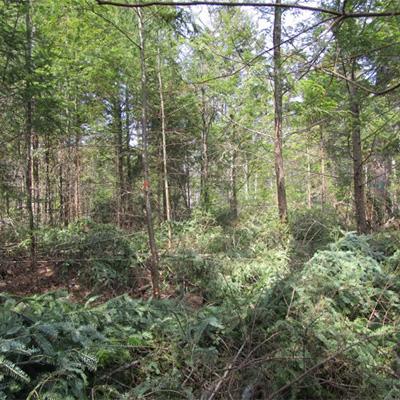Productivity, Regeneration Patterns and Precommercial Treatment Options of Two Ecologically Based Silvicultural Systems: 20-year Results from the AFERP Study

Over the past two decades, foresters have increasingly emphasized the management of forests for both commodities and biodiversity. This change gave rise to a number of ecologically based silvicultural systems, or ways to grow and harvest trees that mimic natural disturbances in a forest. Researchers have established several large-scale, long-term experiments throughout North America aimed at studying such alternatives to traditional production forestry. But astonishingly few have documented basic regeneration, stemwood productivity, and carbon stocks in a currency familiar to forest managers. The Acadian Forest Ecosystem Research Project (AFERP), established on the Penobscot Experimental Forest in Maine, represents a 25-year ongoing effort to test an ecologically based silvicultural system in a mixed-species forest type representative of much of the Northern Forest.
NSRC researchers evaluated two variations of natural disturbance-based expanding gap silviculture and implemented the second 10-year gap-expansion harvests from 2015 to 2017. Researchers remeasured permanent overstory and understory vegetation plots. Graduate student David Carter re-measured 787 retention trees and found only 8.4% had died over 20 years. Graduate student Maggie Mansfield found significant increases in understory species richness in both treatments.
Precommercial thinning treatments were implemented in the large-gap treatment, following a protocol developed by graduate student Michael Pounch in 2017. The AFERP study sites have been featured in countless, influential field tours targeted at professionals, two iterations of the Northeast Silviculture Institute (2017, 2018), multiple webinars given by the principal investigator, several University of Maine forestry classes and field exercises, and other public outreach events focused on the Penobscot Experimental Forest.
